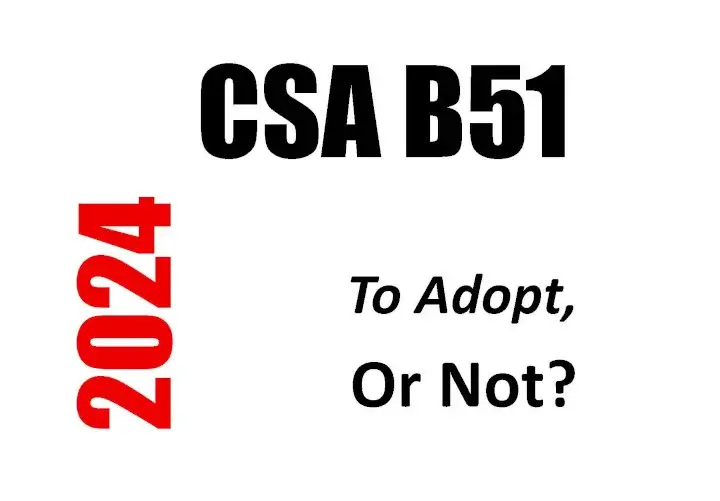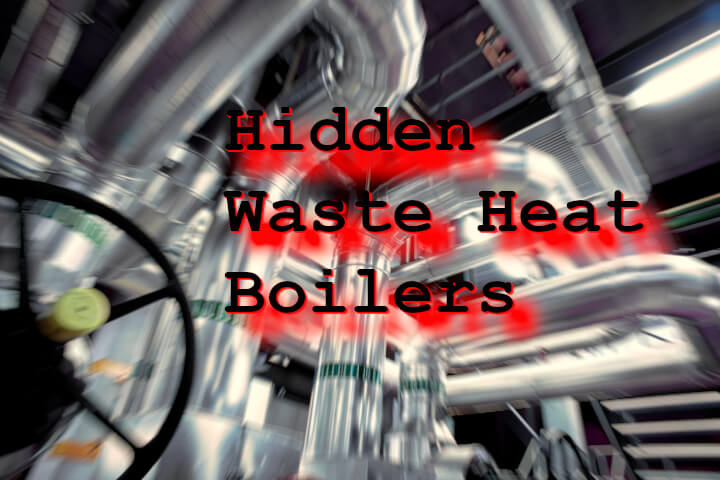In the previous two articles of this series, we discussed what a CRN (Canadian Registration Number) number is, and why they’re necessary. In this article, we’re going to start talking about CRN exemptions: instances when pressure equipment does not need a CRN, and about how this is important to consider.
In Canada, except for federal facilities, pressure equipment safety is governed by provincial or territorial (jurisdictional) legislation. And despite the separation between provincial and federal responsibilities, arrangements exist that allow federal equipment to meet jurisdictional crn number requirements.
- Thirteen Independent Jurisdictions
Canada has thirteen independent jurisdictions: ten provinces and three territories (British Columbia, Alberta, Saskatchewan, Manitoba, Ontario, Quebec, New Brunswick, Prince Edward Island, Nova Scotia, Newfoundland, Yukon, Northwest Territories, and Nunavut). Each jurisdiction has a regulatory authority.In many cases, exemptions from registration are outlined in legislation. In others, regulatory authorities issue signed publications in accordance with its legislation, or in their website’s text, stating exemptions from registration exist in certain circumstances. Surprisingly, some exemptions seem to be more informal than others. Each regulatory authority can decide, at their own discretion subject to the pleasure of their jurisdictional government, whether pressure equipment categories or specific designs require registration for use in their region – or not!Jurisdictions don’t always agree with each other about which designs warrant a CRN registration requirements and which don’t. Potentially dangerous equipment does not always require registration! For example, in Alberta, size on size welded tees and laterals require registration, and often a proof test is mandatory there prior to registration! However, size on size welded tees and laterals in Saskatchewan reportedly don’t even require registration before use.
- Responsibility
Legislation states that jurisdictional regulators are significantly shielded from any responsibility for statutory decisions they make in good faith. And its common sense that in order to avoid potential conflicts, regulators cannot own or be seen to own any design which they regulate. This is why regulators ordinarily don’t offer advice about how to fix a design deficiency since, to do so, would imply ownership of the design.Given the above, who is responsible for pressure equipment designs? Good question since per the explanation above, regulators are not!Simply put, according to legislation, all owners are potentially responsible. Everyone with care and control over a design is potentially responsible for it, including designers, manufacturers, contractors, vendors, and end users.And, unless professional engineering legislation in a jurisdiction states otherwise, professional engineers are required to approve all pressure equipment designs before use.
- Are Exemptions From Registration Important?
Of course! But not for the reasons that some might presume. An exemption is not a ticket to cut corners without consequences. Safety is always paramount regardless of whether regulatory CRN requirements exist or not. CRN exemptions do not necessarily mean that exempt equipment is safer. And responsibility for equipment remains even if it is exempt; responsibility doesn’t disappear. However, exemptions are still important to properly consider for a couple of reasons, including:
- Consequences:
Penalties for offenses under provincial statutes seem to be on the increase. For example, in Alberta, potential fines are now $100,000 CAD and 6 months in prison for the first offence, increasing to 12 months in prison and $500,000 CAD for second and consecutive offenses.It’s important to not mistakenly presume that your equipment is exempt from registration; and
- Competition:
Exemptions can shorten the time required to bring pressure equipment to market. Registration does take some time, and that time can be particularly disadvantageous if industry is waiting! Provided that safety is maintained or enhanced, streamlining market access has benefits to all, including consumers, clientele, and the manufacturing industry.
Increasing the speed at which designs can be registered across inter-provincial boundaries is important to consider. And though it can be related somewhat to exemptions, inter-provincial harmonization is an important topic for another article.
For the time being, just be aware that knowing what exemptions are available will decrease the time required to bring equipment to market, and will increase your competitiveness.
Appendix: Provincial Regulators, Statutes, Regulations, and Publications (with CRN exemptions) included below are the web addresses of the jurisdictions, their pressure equipment legislation and publications. It can be interesting reading!
As time permits, we will publish more articles to highlight the various exemptions available in each region of Canada. These links can change occasionally but we’ll try to keep them as current as possible. For a complete list of resources provided by regulators, check out their websites.
You’ll likely note after glancing at the contents that some provinces publish more exemptions than others!
- British Columbia
Regulator and Registrar: British Columbia Safety Authority
Legislation:
Safety Standards Act
- Safety Standards General Regulation
- Power Engineers, Boiler, Pressure Vessel and Refrigeration Safety Regulation
Publications:
- Safety Orders
- Directives
- Information Bulletins
- Fees
- Alberta
Regulator and Registrar: Alberta Boilers Safety Association
Legislation:
- Safety Codes Act
- Pressure Equipment Safety Regulation
- Pressure Equipment Exemption Order
- Boilers Delegated Administration Regulation
- Administrative Items Regulation
- Power Engineers Regulation
- Pressure Welders Regulation
Publications:
- The Pressure News
- Information Documents and Forms
- Alerts, Interpretations, Notifications, and Variances
- Fees
- Saskatchewan
Regulator and Registrar: Technical Safety Authority of Saskatchewan
Legislation: - The Boiler and Pressure Vessel Act
- The Boiler and Pressure Vessel Regulations
- The Technical Safety Authority of Saskatchewan Act
- Safety Standards Agreement
Publications:
- Information Papers
- Fees
- Manitoba
Regulator and Registrar: Manitoba Office of the Fire Commissioner – Steam and Pressure Plants
Legislation:- The Steam and Pressure Plants Act
- Steam and Pressure Plants Regulation
Publications:
- Guidelines for Foreign Equipment
- Legislative Review
- Fee Table
- Ontario
Regulator and Registrar: Technical Standards and Safety Authority
Legislation:- Technical Standards and Safety Act
- Boilers and Pressure Vessels Regulation
Publications:
- Summary of Key Changes to Regulation
- Director’s Order
- Safety Order Re Pressure Relief Valves
- Code Adoption Amendment
- Safety Information Bulletins
- Safety Advisories
- FAQs
- Fees
- Quebec
Regulator and Registrar: Regié Du Bâtiment Du Québec
Legislation:- Act Respecting Pressure Vessels
- Regulations Respecting Pressure Vessels
- New Brunswick
Regulator: Government of New BrunswickRegulator’s Delegated Registrar: ACI Central
Legislation:- Boiler and Pressure Vessel Act
- Boiler and Pressure Vessel Regulation
Publications:
- Fees
- Prince Edward Island
Regulator: PEI Department of Communities, Land and Environment Regulator’s Delegated Registrar: ACI Central
Legislation:Publications:
- Installation and Alteration Permits
- Boiler and Pressure Vessel Advisory Board
- Nova Scotia
Regulator: Nova Scotia Department of Labour and Advanced Education Regulator’s Delegated Registrar: ACI Central
Legislation:- Technical Safety Act
- Technical Safety General Regulations
- Boiler and Pressure Equipment Regulations
Publications:
- Province Streamlines Safety Regulations in New Act
- Directives
- Fees
- Newfoundland
Regulator: Service Newfoundland Regulator’s Delegated Registrar: ACI Central
Legislation:- Public Safety Act
- Boiler, Pressure Vessel and Compressed Gas Regulations
Publications:
- Yukon
Regulator: Yukon Department of Community ServicesRegulator’s Delegated Registrar: ACI Central
Legislation: - Northwest Territories
Regulator: Northwest Territories Public Works and Services Regulator’s Delegated Registrar: ACI Central
Legislation:Publications:
- FAQs
- Information
- Boiler Safety Bulletins
- Fees
- Pressure Vessel Bulletins
- Nunavut
Regulator: Nunavut Community and Government Services Regulator’s Delegated Registrar: ACI Central
Legislation: Boilers and Pressure Vessels Act
For More Information:
Please read our blog articles here.




